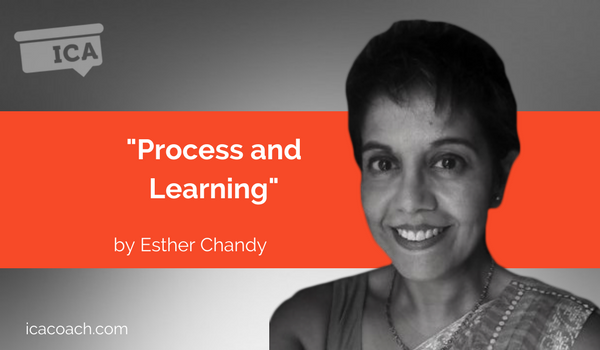
Research Paper By Esther Chandy
(Business and Personal Coach, INDIA)
1. Who are the main players in this case study (you can use fake names to protect anonymity)
The main players are NB (42, musician), and I (as coach)
2. What is the core problem or challenge you applied your coaching skills to?
NB did not have a structured job and as a musician with his own band kept odd timings. Further, his lifestyle was such that he was surrounded by hard drinkers and substance abuse was common. NB had been struggling with drinking for more than 10 years. He had stopped drinking completely for a few years was back to drinking regularly.
It was a problem because it was beginning to tell on his health (he averaged more than 20 drinks a week). There were two reasons this was a problem that was not solved – one is that he was living alone and so there was no external reference point
to “normalize” his behaviour against. The second is that he had personally given up on trying to quit.
I did not set out to coach him on this issue, however, we had been in touch off and on and when I coached him on an issue relating to his business, one thing led to another and he started talking about his drinking
3. What specific coaching skills or approach did you use in this case?
Active Listening, Powerful questioning, creating awareness. Direct communication, designing actions, planning and goal setting and also managing progress and accountability.
4. Explain your process in detail
I listened to the impact it had on his life. I asked questions around the routine of his day, his friends, his work, his existing structures. He then became aware of the stages leading up to his pouring a drink. The turning point came when he realised he was slaking his thirst for water by drinking alcohol. It was truly an “aha” moment for him (and it surprised me too). We then examined what structures to put in place to ensure he was well hydrated long before 6 pm (the time when he reached for his first drink). We also examined what his payoff was by drinking (social acceptance, relaxed feeling, habit). He established a routine which began as soon as he entered the house (from coming back from the recording studio at 4:30 pm). He asked me to be his accountability partner. He became aware of the scenarios where it was possible for him to fail. We did a visualization exercise in which I asked him to visualize FAILING and then getting back on his feet and continue on his journey to a more conscious and controlled consumption of alcohol. He established rules for himself that allowed him to drink on certain occasions.
5. What were the results of your process? Was your coaching/program effective? Why? Why not?
As a result of the coaching intervention, a new level of awareness as to his motives for drinking was created in NB. He was able to reduce his alcohol consumption to social occasions where there was no music involved (his rules, naturally)
6. What are the top 3 things you learnt from this experience?
Opportunities to use coaching skills can crop up at the oddest times
If you remain genuinely curious and stay WITH the client (not trying to out think him,), discoveries will be made that will surprise you both
The actions your client designs may not be those that you would do if you were in their place. Respect them anyway. And don’t expect instant results. Be patient (my client took 4 months)